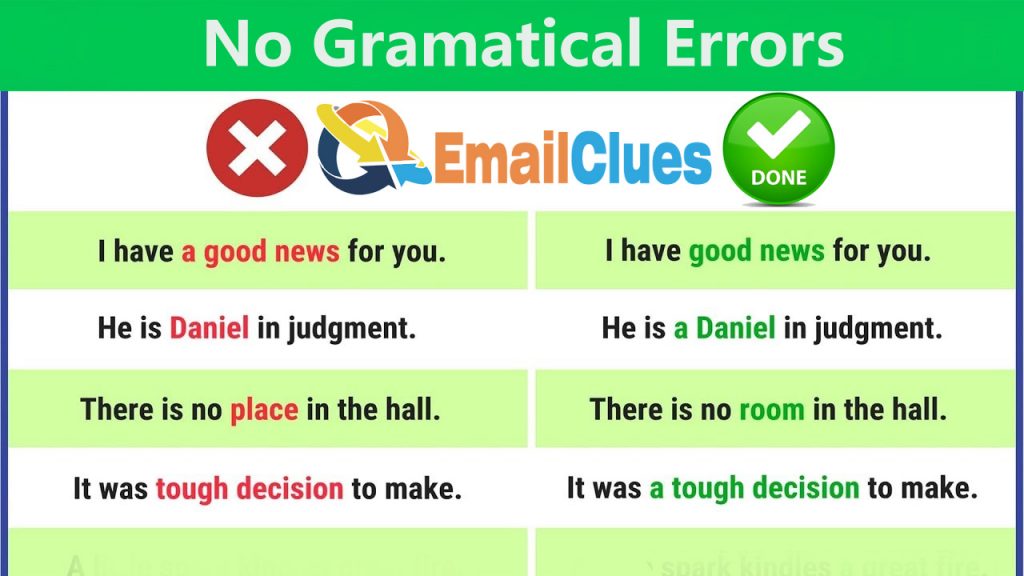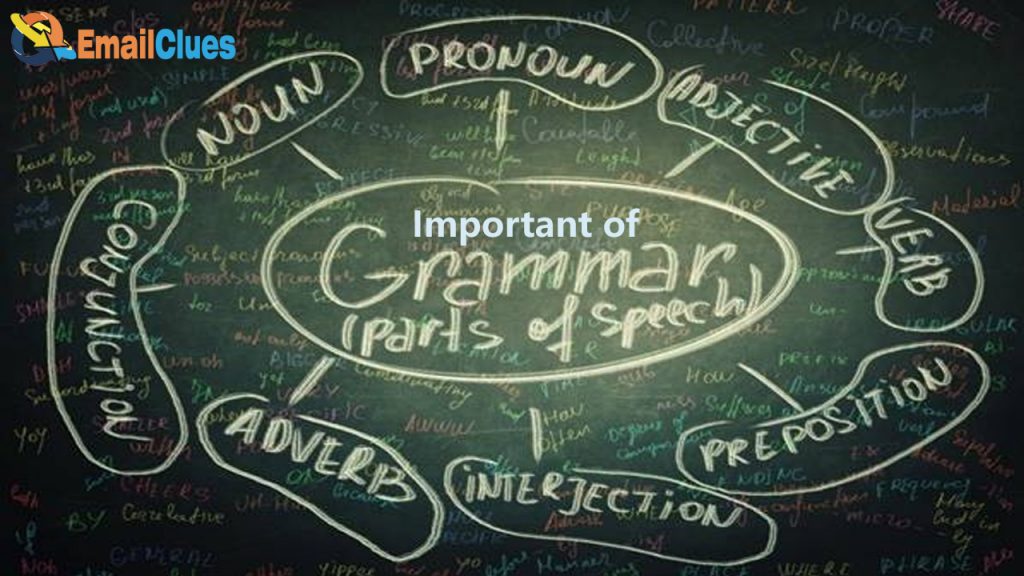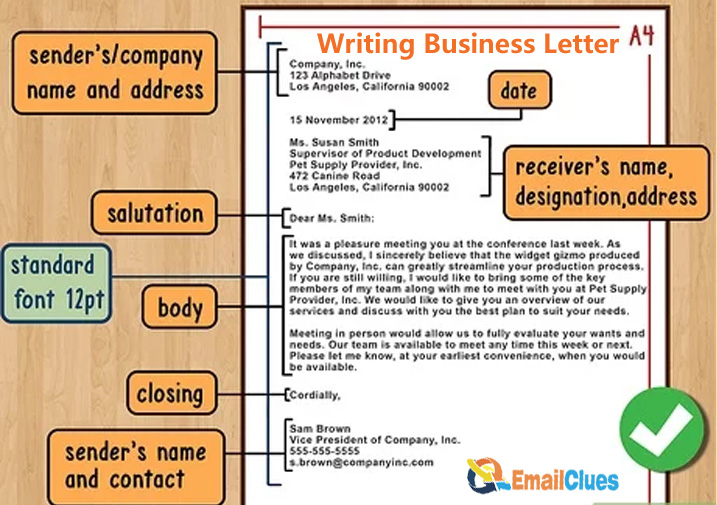11 Things Needs When Writing Content without Grammatical Error

People often ask how they can write content without making grammatical errors. The answer is actually quite simple: you can’t. Even the best writers make occasional mistakes when they write, and that’s inevitable. However, there are certain techniques that can help you avoid making too many errors and improve your writing overall. Let’s learn about everything about content writing in this article.
How to do Content Writing?
Do you want to write content for your website, blog, or other online presence? If so, you’ve come to the right place! This section will teach you everything you need to know about writing content for your website or blog. First, let’s talk about what content is and why it’s important. Content is the information that visitors read, watch, or listen to on your website or blog. It can be text (like articles), images (like photos), or video (like videos).

One of the most important things you can do when writing content for your website or blog is to think about what your visitors want and need. What topics are they talking about on social media? What are their concerns? When creating content, think about what questions your readers might have and how you could answer them.
Why Is it important to write fresh content?
Fresh content is important for a website or blog because it engages the reader on an emotional level. When a user sees fresh content, they feel like they are part of the conversation and that the author cares about what they have to say. This creates loyalty and trust among readers, which in turn leads to more visits and conversions. Additionally, when a site publishes new content on a regular basis, it shows that it is invested in its audience and those readers will return time and time again.

When you consistently update your content, your website or blog will look more professional and be more likely to attract new readers. Additionally, fresh content is also likely to be more accurate than older content, which can improve your site’s reputation. By writing fresh content, you can ensure that your site remains relevant and valuable to potential customers.
Why is it important to write correctly?
When you write, you owe it to yourself, your readers, and your colleagues to make sure your words are clear and easy to follow. There are a few reasons why proper grammar is important:

- Incorrect grammar can lead to confusion among readers. For example, if you use the wrong verb tense for a sentence, the meaning of the sentence can change entirely.
- Misused words can also have a negative impact on your writing. For example, if you use the word “instead” when you mean “instead of” or “although” when you mean “although not,” your sentence will sound awkward and incorrect.
- Proper grammar also makes your writing look more professional. A well-written document is typically easier to read than one with errors.
Grammatical structure in research writing?
Grammatical structure in research writing can be a confusing topic for students and even professionals. In this section, we will explore the different types of sentence structures that are used in research papers, and discuss the importance of using them correctly.

There are three main sentence structures used in research papers: common, complex, and compound. Each has its own advantages and disadvantages.
- Common sentences are the most basic type of sentence structure and are made up of one independent clause and one dependent clause. They are easy to understand and make it easy to move from one idea to the next. However, they can feel choppy and lack complexity.
- Complex sentences consist of two or more independent clauses connected by a conjunction (and, but, or, nor). They can be more difficult to read than common sentences because they can require more concentration to understand.
- Compound sentences can be used to provide evidence for an argument. For example, “Although there have been some improvements over the years, the quality of education in America remains highly variable.”
Why should a researcher Avoid grammatical errors in writing?
Grammatical errors may seem like a small thing, but they can really affect a researcher’s credibility and ability to be taken seriously. When writing for academic purposes, it is important to use proper grammar and spelling so that your work is properly interpreted. Not only will this improve your chances of getting published, but it will also make you more credible as an expert in your field. Here are some tips on how to avoid making grammatical errors when writing:
1. Use credible sources when referencing other materials. Make sure the information you are using is reliable and comes from a reputable source. This will help validate your claims and increase the credibility of your work overall.
2. Always proofread your work carefully before submitting it to a journal or publishing it online. This includes checking for grammar and spelling mistakes.
3. Use a spellchecker or grammar checker software when editing your work. These tools can help you identify and correct any errors immediately.
4. Follow standard spelling and grammar rules when composing your text. This will help ensure that your readers understand what you are saying without having to hunt down incorrect spelling or grammar.
Why is it important to have no grammatical errors?
Grammatical errors can be a real turnoff for potential customers and colleagues. They can also make you look sloppy and unprofessional. Ironically, making minor grammatical corrections can go a long way in making your writing seem polished and professional. Here are six reasons why it’s important to have no grammatical errors:

1. It shows that you’re paying attention to detail.
2. It demonstrates your competence in the language you’re using.
3. It makes your writing more readable and engaging for the reader.
4. It will show that you take care in how you present yourself to others.
5. It will strengthen your credibility as a writer or speaker.
Is grammar important in content writing?
There is no right or wrong answer when it comes to whether grammar is important in content writing. Ultimately, the decision comes down to what you believe will provide the best readability for your audience. However, there are a few things to keep in mind when making this decision.

- First and foremost, make sure that your sentence structure is clear and concise. This will help readers not only understand what you’re saying, but also how you’re saying it.
- Secondly, use correct spelling and grammar whenever possible. Not doing so can lead to confusion among your readers and may even result in them getting frustrated with your writing.
- Ultimately, it comes down to personal preference as to whether or not grammar is important in content writing. However, following a few simple guidelines should help ensure that your audience can easily follow what you’re saying.
Important rules in writing business letters and other formal documents?
When writing a business letter, keep in mind the following important rules:

1. Write to Person You Are Addresssing- Always use the proper name of the person you are addressing, even if it is the same as their title.
2. Use Correct Format- Follow standardized format for all business letters. Use specific terms such as “Dear Mr./Mrs./Ms.” or “To Whom It May Concern.”
3. Be Clear and Concise- Keep your letter concise and to the point. Do not write flowery language or use long sentences.
4. Keep a copy of your letter for your records.
5. Follow up with a thank-you note if necessary.
6. Avoid common writing mistakes in business letters.
7. Proofread Before Sending- Make sure your letter is error-free before sending it off. Ask someone else to read it over for accuracy before you send it off, too.
Use signals expression correctly in expressing your thoughts
When you want to communicate your thoughts, it is important to use signals expression correctly. A signal can be anything that conveys a message, such as a facial expression, an affirmative or negative nod, or even a single word. When communicating with others, it is important to be aware of the various signals they are sending and use them appropriately.
Here are some tips for using signals in a way that will be understood by your peers:
-Be aware of the facial expressions people make when they are thinking or feeling something. This can help you understand their feelings without having to say anything. For example, if someone looks sad, you might want to offer comfort and avoid making jokes.
-Use positive and negative body language when appropriate.
-Make eye contact when speaking to someone. This will show that you are paying attention and want to communicate with them.
-Speak in a clear voice. This will make it easy for the other person to understand what you are saying.
-Use facial expressions and body language when communicating with others. This will help them understand your thoughts and feelings.
-Use simple words when conveying your thoughts. This will make it easier for the other person to understand what you are saying.
Conclusions:
In conclusion, there are many ways to ensure that your content is error-free, but the most reliable way to do so is to have a proofreader or editor review your work prior to publication. However, even with these precautions, there will still be errors in content. Nevertheless, by taking these simple steps you can greatly reduce the chances of having grammatical errors in your content. So, what are you waiting for? Get started on your content and avoid pesky grammar mistakes!








